N
Nancy Clark
Guest
Great Nutrition Tactics For Who Want To Build Muscles
It’s September already … a time when soccer players are always hankering to be more powerful.
Most soccer players want to have strong muscles to be more powerful, help prevent injuries, and yes, to look buff. They wonder: What can I eat for more muscle, strength, and power?
Questions arise about the best ways to add muscle mass:
Here are the answers to those questions:
Nutrition for Soccer Players: Protein Needs
Based on research from 49 studies that included 1,863 healthy participants, about 0.7-gram protein/lb of body weight (1.6 g pro/kg)/day is associated with the greatest gains in muscle mass (1).
Eating additional protein is unlikely to offer further benefits. That is, piling your plate with three chicken breasts at lunch and dinner is a needless way to spend your food budget.
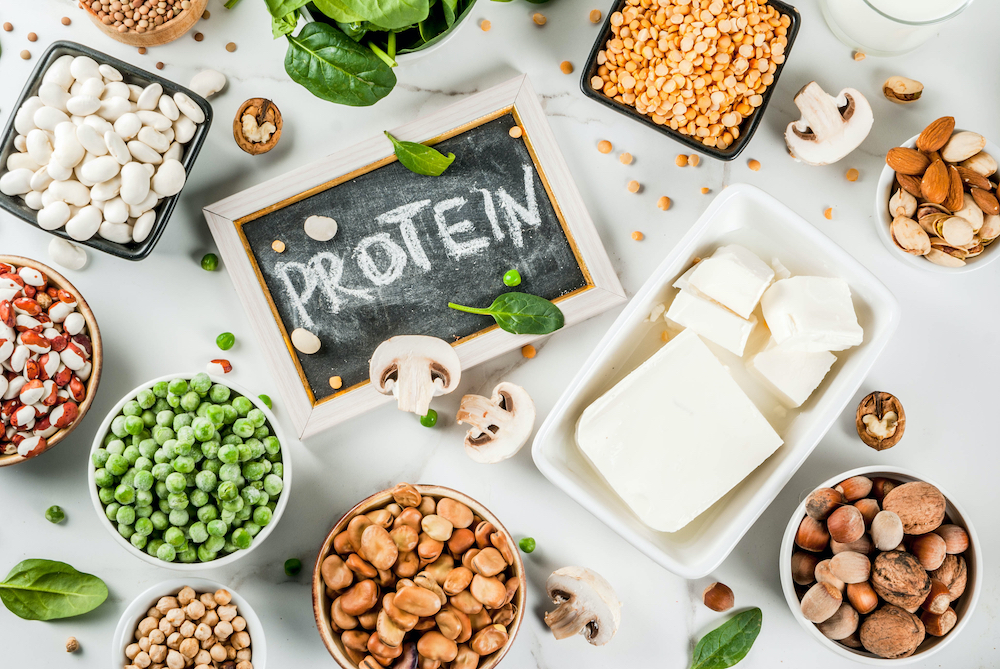
Nutrition for Soccer Players: Extra Calories
Building muscle requires energy; you need added fuel to build new muscle mass. Yet, excessive calories (even excess calories from protein) can end up as body fat, not muscle.
Studies with weight-trained subjects who lifted heavy weights for at least 6 weeks and ate extra protein (but not extra calories) suggests they gained only about 2.5 lbs (1.1 kg) new muscle (2). Not much.
Genetics strongly impacts one’s ability to add muscle. In a study with sedentary twins who overate by 1,000 calories a day for 100 days, the subjects gained, on average, about 6 lbs. (2.7 kg) of muscle and about 12 lbs (5.4 kg) of fat.
That means, for each one pound of muscle gained (without lifting weights), they gained about two pounds of fat. Each twin-pair gained a similar amount of weight but the results varied significantly between sets of twins (3).
For a 150-pound athlete, the standard advice is to add about 350 to 475 calories a day to build new muscle and minimize fat gain (1). Yet, more research is needed for more precise advice, given that many factors impact calorie needs: the amount of energy-rich fat and glycogen stored in the muscle; the number of calories burned during training; the magnitude of the post-workout rise in metabolism; the fate of the excess calories (turning carbohydrate or protein into body fat takes energy); the energy cost of building and maintaining new muscle tissue; the calories burned when you overeat and spontaneously fidget more. This is a complex calculation!
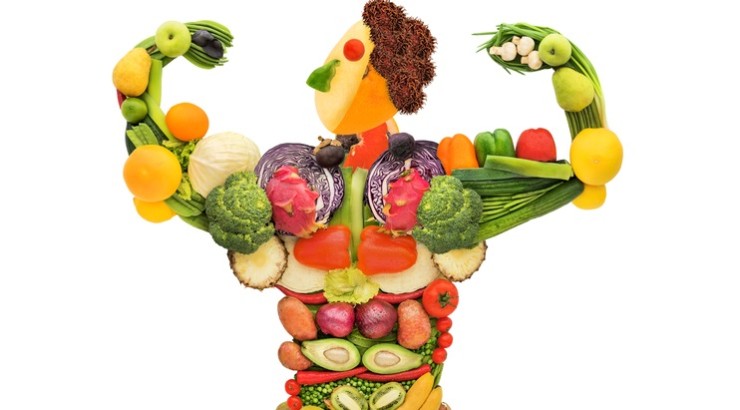
Youth Soccer News on Good Nutrition
Nutrition for Soccer Players: Source of the Additional Calories
Carbohydrate is the primary fuel used to lift weights, so eating additional calories from carb-based grains, fruits and veggies seems a wise choice to support a training program.
A hard lifting session can deplete muscle glycogen by 30-40%. Given glycogen depletion is linked with fatigue, repeated days of low carb intake can impair the ability to train hard.
Consuming about 2 to 3 grams of carbohydrate per pound of body weight (4-7 g carb/kg) per day is a good target for strength-training athletes. If you are training in addition to lifting weights, you want to target a higher amount of carbs.
That means a 150-pound soccer player who lifts weights should target at least 450 g carb per day. That’s 1,800 carb-cals to support both lifting and soccer. That’s no Atkins (high protein) or keto (high fat) diet!
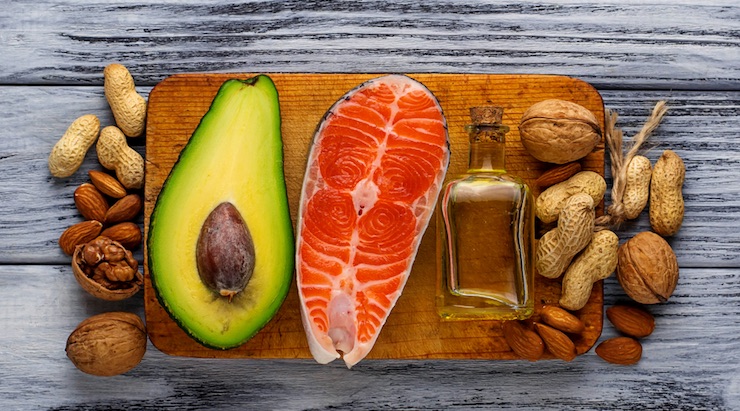
Protein is a source of the amino acid leucine. Leucine is an important trigger for building muscle. Hence, leucine-rich proteins can maximize muscle synthesis.
Examples: 8-ounces dairy milk has 1 g leucine; soymilk has only 0.5 g. The goal is about 2.5 to 3 g leucine per meal.
Read: SOCCER PLAYERS: GET AN ADVANTAGE AND WIN WITH GOOD NUTRITION
Rather than devouring protein shakes, bars and powders, note that natural forms of protein can be more effective at building muscle. That’s because protein is bundled into a natural matrix that contains other factors that impact muscle growth.
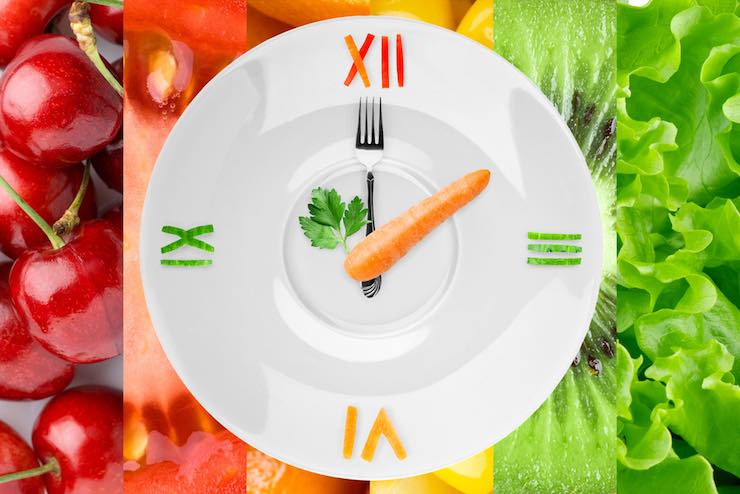
Nutrition for Soccer Players: When to Eat
To promote muscle mass and minimize fat gain, front-load your calories rather than eat most of your food towards the end of the day. Surround your work-outs with protein-carb combinations, particularly when doing long workouts.
Examples: eggs and toast, turkey-cheese sandwich, beans & rice & cheese, chocolate milk.
Read: NUTRITION TIPS FOR SOCCER PLAYERS: SHOULD YOU EAT BEFORE A GAME?
Plan meals with ~0.15 g protein/lb body weight (0.3 g/kg) every 3 to 5 hours throughout the day. For a 150-lb soccer player, that’s about 25 g protein per meal and snack. That means, don’t have just plain oatmeal for breakfast; cook it in milk and add peanut butter. Enjoy eggs with that bagel.
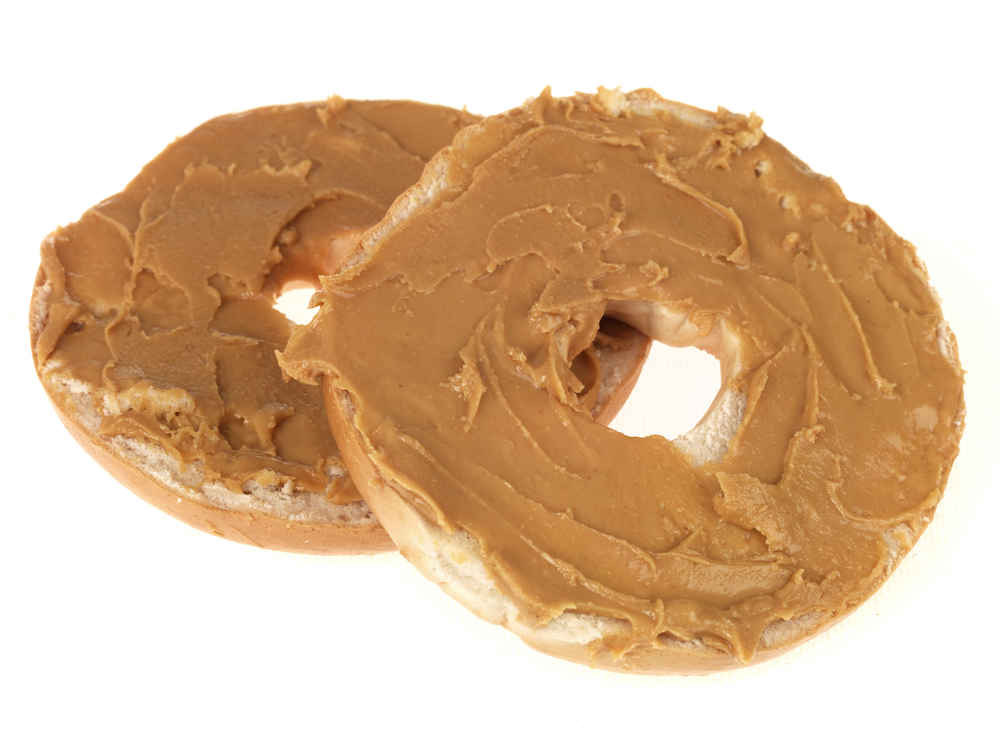

Adama Traore Diarra – Pro Soccer Player
The standard belief is to eat extra protein, but more fundamental than food is doing some form of resistance exercise. Lifting weights is far more powerful for building muscle than is eating the extra protein unless of course, you have been eating a protein-deficient diet).
Read: NUTRITION FOR SOCCER PLAYERS: HOW TO AVOID SNACK ATTACKS
Once you have a good training program, you can then integrate optimal fueling tactics into your sports diet. Keep in mind the benefits of adding muscle need to exceed any potential slow-down in speed-related to the weight gain. Some soccer players who perceive themselves as “under-muscled” are actually already very strong and effective.
You can slightly redesign but not totally remodel your body. Eat well and be realistic!

Sports Nutritionist Nancy Clark
SIDEBAR: Nutritional and medical advice changes with new discoveries and interpretations. Always check with your medical provider and/or nutritionist for what is best for you and your family.
Sports nutritionist Nancy Clark MS RD CSSD has a private practice in the Boston-area, where she helps both fitness exercisers and competitive athletes create winning food plans. Her best-selling (6th Edition) Sports Nutrition Guidebook, and Food Guide for Soccer, as well as teaching materials, are available at www.nancyclarkrd.com. Click here for online and live workshop
Read: SOCCER NUTRITION: HOW BAD IS ALCOHOL FOR PLAYERS?
References:
1) Slater G et al. Is an energy surplus required to maximize skeletal muscle hypertrophy associated with resistance training? Front Nutr (2019), 6:131 https://www.ncbi.nlm.nih.gov/pmc/articles/PMC6710320/
2. Morton R et al. A systematic review, meta-analysis and meta-regression of the effect of protein supplementation on resistance training-induced gains in muscle mass and strength in healthy adults. Br J Sports Med. (2018) 52:376–84
3. Bouchard C et al. . The response to long-term overfeeding in identical twins. N Engl J Med. (1990) 322:1477–82
The post NUTRITION FOR SOCCER PLAYERS: TACTICS FOR BUILDING MUSCLES appeared first on SoccerToday.
Continue reading...
SoccerToday News from Diane Scavuzzo
It’s September already … a time when soccer players are always hankering to be more powerful.
Most soccer players want to have strong muscles to be more powerful, help prevent injuries, and yes, to look buff. They wonder: What can I eat for more muscle, strength, and power?
Questions arise about the best ways to add muscle mass:
- How much protein should I eat to build more muscle?
- How many additional calories does my body need to build muscle —but not gain fat?
- Where should the calories come from: carb, protein, fat?
- When should I eat the additional calories?
Here are the answers to those questions:
Nutrition for Soccer Players: Protein Needs
Based on research from 49 studies that included 1,863 healthy participants, about 0.7-gram protein/lb of body weight (1.6 g pro/kg)/day is associated with the greatest gains in muscle mass (1).
Eating additional protein is unlikely to offer further benefits. That is, piling your plate with three chicken breasts at lunch and dinner is a needless way to spend your food budget.

Nutrition for Soccer Players: Extra Calories
Building muscle requires energy; you need added fuel to build new muscle mass. Yet, excessive calories (even excess calories from protein) can end up as body fat, not muscle.
Studies with weight-trained subjects who lifted heavy weights for at least 6 weeks and ate extra protein (but not extra calories) suggests they gained only about 2.5 lbs (1.1 kg) new muscle (2). Not much.
Genetics strongly impacts one’s ability to add muscle. In a study with sedentary twins who overate by 1,000 calories a day for 100 days, the subjects gained, on average, about 6 lbs. (2.7 kg) of muscle and about 12 lbs (5.4 kg) of fat.
That means, for each one pound of muscle gained (without lifting weights), they gained about two pounds of fat. Each twin-pair gained a similar amount of weight but the results varied significantly between sets of twins (3).
For a 150-pound athlete, the standard advice is to add about 350 to 475 calories a day to build new muscle and minimize fat gain (1). Yet, more research is needed for more precise advice, given that many factors impact calorie needs: the amount of energy-rich fat and glycogen stored in the muscle; the number of calories burned during training; the magnitude of the post-workout rise in metabolism; the fate of the excess calories (turning carbohydrate or protein into body fat takes energy); the energy cost of building and maintaining new muscle tissue; the calories burned when you overeat and spontaneously fidget more. This is a complex calculation!

Youth Soccer News on Good Nutrition
Nutrition for Soccer Players: Source of the Additional Calories
Carbohydrate is the primary fuel used to lift weights, so eating additional calories from carb-based grains, fruits and veggies seems a wise choice to support a training program.
A hard lifting session can deplete muscle glycogen by 30-40%. Given glycogen depletion is linked with fatigue, repeated days of low carb intake can impair the ability to train hard.
Consuming about 2 to 3 grams of carbohydrate per pound of body weight (4-7 g carb/kg) per day is a good target for strength-training athletes. If you are training in addition to lifting weights, you want to target a higher amount of carbs.
That means a 150-pound soccer player who lifts weights should target at least 450 g carb per day. That’s 1,800 carb-cals to support both lifting and soccer. That’s no Atkins (high protein) or keto (high fat) diet!

- Your intake of dietary fat should stay within health guidelines, which means 20-35% of total energy intake.
- More simply put, that’s the equivalent of some fat at each meal and snack. Your best bet is to include health-promoting nuts, peanut butter, avocado, salmon, and olive oil. Do not avoid fat; a very low-fat diet can reduce testosterone levels. That’s counterproductive!
Protein is a source of the amino acid leucine. Leucine is an important trigger for building muscle. Hence, leucine-rich proteins can maximize muscle synthesis.
- Animal proteins have about double the leucine content of calorie-matched plant sources of protein.
Examples: 8-ounces dairy milk has 1 g leucine; soymilk has only 0.5 g. The goal is about 2.5 to 3 g leucine per meal.
Read: SOCCER PLAYERS: GET AN ADVANTAGE AND WIN WITH GOOD NUTRITION
Rather than devouring protein shakes, bars and powders, note that natural forms of protein can be more effective at building muscle. That’s because protein is bundled into a natural matrix that contains other factors that impact muscle growth.
Your best bet is to eat food first and rely less on processed protein products.

Nutrition for Soccer Players: When to Eat
To promote muscle mass and minimize fat gain, front-load your calories rather than eat most of your food towards the end of the day. Surround your work-outs with protein-carb combinations, particularly when doing long workouts.
Examples: eggs and toast, turkey-cheese sandwich, beans & rice & cheese, chocolate milk.
Read: NUTRITION TIPS FOR SOCCER PLAYERS: SHOULD YOU EAT BEFORE A GAME?
Plan meals with ~0.15 g protein/lb body weight (0.3 g/kg) every 3 to 5 hours throughout the day. For a 150-lb soccer player, that’s about 25 g protein per meal and snack. That means, don’t have just plain oatmeal for breakfast; cook it in milk and add peanut butter. Enjoy eggs with that bagel.

- One way to evenly pace your protein is to eat a meal every 4 hours, such as breakfast at 7:00-ish, early lunch at 11:00-ish, later lunch at 3:00-ish, and dinner at 7:00-ish.
- On rest days, your muscles are busy replacing depleted glycogen stores. Eat enough to have a positive energy balance on both training and non-training days.

Adama Traore Diarra – Pro Soccer Player
The standard belief is to eat extra protein, but more fundamental than food is doing some form of resistance exercise. Lifting weights is far more powerful for building muscle than is eating the extra protein unless of course, you have been eating a protein-deficient diet).
Read: NUTRITION FOR SOCCER PLAYERS: HOW TO AVOID SNACK ATTACKS
Once you have a good training program, you can then integrate optimal fueling tactics into your sports diet. Keep in mind the benefits of adding muscle need to exceed any potential slow-down in speed-related to the weight gain. Some soccer players who perceive themselves as “under-muscled” are actually already very strong and effective.
You can slightly redesign but not totally remodel your body. Eat well and be realistic!

Sports Nutritionist Nancy Clark
SIDEBAR: Nutritional and medical advice changes with new discoveries and interpretations. Always check with your medical provider and/or nutritionist for what is best for you and your family.
Sports nutritionist Nancy Clark MS RD CSSD has a private practice in the Boston-area, where she helps both fitness exercisers and competitive athletes create winning food plans. Her best-selling (6th Edition) Sports Nutrition Guidebook, and Food Guide for Soccer, as well as teaching materials, are available at www.nancyclarkrd.com. Click here for online and live workshop
Read: SOCCER NUTRITION: HOW BAD IS ALCOHOL FOR PLAYERS?
References:
1) Slater G et al. Is an energy surplus required to maximize skeletal muscle hypertrophy associated with resistance training? Front Nutr (2019), 6:131 https://www.ncbi.nlm.nih.gov/pmc/articles/PMC6710320/
2. Morton R et al. A systematic review, meta-analysis and meta-regression of the effect of protein supplementation on resistance training-induced gains in muscle mass and strength in healthy adults. Br J Sports Med. (2018) 52:376–84
3. Bouchard C et al. . The response to long-term overfeeding in identical twins. N Engl J Med. (1990) 322:1477–82
The post NUTRITION FOR SOCCER PLAYERS: TACTICS FOR BUILDING MUSCLES appeared first on SoccerToday.
Continue reading...
SoccerToday News from Diane Scavuzzo
